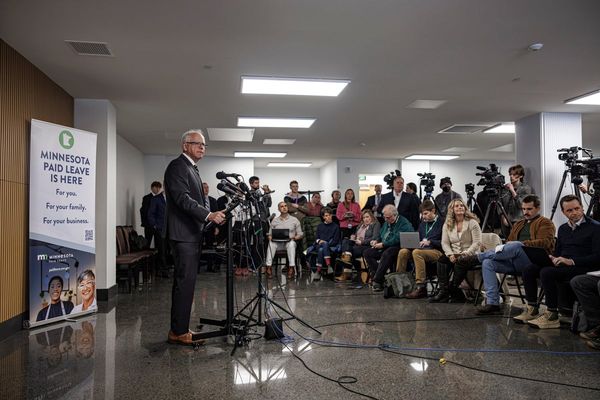
In less than 24 hours, Jason Palmer went from being a relatively unknown Baltimore businessman, to toppling a sitting president in a US primary caucus. Since then he’s been featured in newspaper profiles, been interviewed on major news networks – and found himself the subject of internet memes across the world.
Joe Biden’s campaign team may have expected to win every Democratic contest on Super Tuesday – but if so, they didn’t account for American Samoa. Of the 91 ballots cast in the territory’s caucus, Palmer won 51, while Biden received 40.
With fewer than 50,000 residents, the tiny collection of islands in the South Pacific – more than 11,000km from Washington DC - accounts for only six of the 1,968 delegates needed to secure the Democratic party nomination – but Palmer’s victory will ensure him three of them, denying Biden a clean sweep.
On Wednesday, the chairman of the American Samoa Democratic Party, Ti’a Reid, congratulated the Palmer campaign on its victory and explained that a focus on local issues secured the outsiders victory.
Helping the planet is a rewarding experience. Thank you to everyone who joined our #Tafuna Coastal Clean Up yesterday. Vote Jason Palmer on 3/5 and together, we can make a difference #AmericanSamoa #Climatesolutions #environmentallyfriendly #JasonPalmer #Election2024 #VoteBlue pic.twitter.com/x7AXQEag3n
— Jason Palmer (@educationpalmer) March 3, 2024
“The Palmer campaign invested in local organisers and digital ad buys, which I believe assisted in their registration and turnout results,” Reid says.
Palmer’s ads were blazoned across local social media and homemade banners could be seen hanging from cars and in front of family homes.
“Everyone I have spoken to … has seen those ads,” Reid says.
Palmer was likely the only Democratic candidate to campaign in the territory. He told the Associated Press that although he hadn’t travelled to American Samoa, he had hosted Zoom town hall events, “talking to people, listening to them about their concerns and what matters to them”.
Palmer’s campaign manager, Mario Arias, told The Washington Post that they had employed one staffer on the ground who helped organise local events like a beach clean-up day.
“From what I’m gathering from the community there, they just wanted to be heard,” Arias said.
Palmer himself told the New York Times that a focus on local issues including improved access to health care and climate change helped him connect with local residents.
“When presidential campaigns invest in our territory locally, that is not only an advantage for their respective campaigns but it also promotes community awareness of our Caucus and event,” Reid says.
Super Tuesday is not a popular event in the territory, and Reid says the highlight for him was “the level of youth engagement and awareness.
“A majority of our caucus attendees that stayed throughout the day were students from high schools. If each of them left with a better understanding of what happens in caucuses and primaries in the lead-up to our general elections in November, that is a success for me.”
Every American deserves an advocate who will champion their cause & amplify their voices. Whether addressing climate change, enhancing healthcare, or improving education, the aspirations of American Samoans resonate with the long-awaited change we all seek https://t.co/U8aANUa3hN pic.twitter.com/TYDMb2MVXN
— Jason Palmer (@educationpalmer) March 6, 2024
Reid also says that there remains a lack awareness throughout the community about the presidential primaries
“As residents of US territories, we can’t vote in the general election, so I believe there is still a disconnect with our presidential caucuses or primaries.”
Palmer has said throughout his campaign that although he voted for Biden four years ago, he believes that voters deserved a younger candidate. On Tuesday he said that he plans to next on focus his campaign on Arizona’s July primary election.
American Samoa has been the site of unexpected victories before. During the 2020 Democratic primaries, billionaire Michael Bloomberg’s only win came in the territory.
As chairman of the American Samoa Democratic Party Reid says he remains neutral when it comes to selecting a candidate and will back whoever the wider party ends up selecting.
“We look forward to the American Samoa delegation to the Democratic National Convention in August, where we’ll celebrate our Party’s nominee.”







